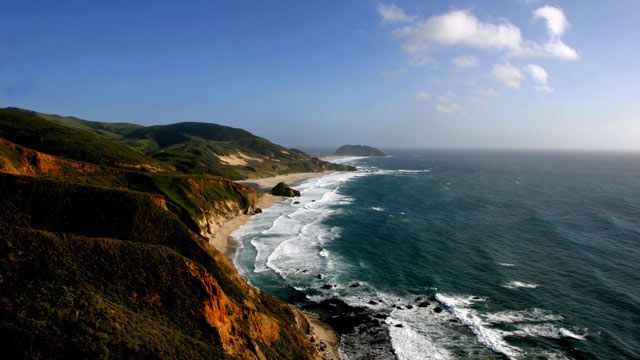
In a rare move, the world’s largest scientific society released a report nudging the public to wake up to the scientifically sound and increasingly frightening reality of climate change.
“As scientists, it is not our role to tell people what they should do or must believe about the rising threat of climate change,” the American Association for the Advancement of Science (AAAS) wrote in the introduction to its new report, “What We Know.” “But we consider it to be our responsibility as professionals to ensure, to the best of our ability, that people understand what we know: human-caused climate change is happening, we face risks of abrupt, unpredictable and potentially irreversible changes and responding now will lower the risk and cost of taking action.”
“They are very clearly saying that we as the scientific community are completely convinced, based upon the evidence, that climate change is happening and human-caused,” said Dr. Anthony Leiserowitz, the director of the Yale Project on Climate Change Communication. “The more people understand that the experts have reached this agreement, the more they in turn decide, ‘well, then I think it’s happening, and I think it’s human-caused, and I think it’s a serious problem, and in turn it increases people’s support for policy.”
The report noted that even though 97 percent of experts agree climate change is happening and we humans are causing it, Americans remain under the impression that the question is still unsettled. According to a 2013 report by the Yale Project on Climate Change Communication, 33 percent of Americans said they believed there was widespread disagreement among scientists and four percent said that “most scientists think global warming is not happening.” Only 42 percent of Americans knew that “most scientists think global warming is happening.”
These numbers suggest that disinformation circulated by the fossil fuel industry, utility companies and their political and media allies has successfully confused the public about the truth of global warming. Spreading the perception that scientists are still undecided is key to their strategy.
Leiserowitz likened it to the campaign waged for decades by tobacco companies. “This in fact was [Big Tobacco’s] primary strategy — to sow doubt,” he said. “They literally wrote, ‘doubt is our product.’ As long as they could give people a false perception that the health community was still undecided about whether smoking caused human health problems, people would continue to smoke. They used that strategy very successfully to delay action on smoking for many years. And it’s been very well-documented that the groups that oppose climate action lifted chapter and verse the exact same strategy right out of the tobacco playbook.”
“That’s the backdrop to this particular statement — that is said very clearly by AAAS — and why it is so important.”
The evidence that human behavior — such as our economies’ reliance on fossil fuels — is causing our climate to change and putting our planet and society at increased risk is overwhelming, the report authors write. “[L]evels of greenhouse gases in the atmosphere are rising. Temperatures are going up. Springs are arriving earlier. Ice sheets are melting. Sea level is rising. The patterns of rainfall and drought are changing. Heat waves are getting worse as is extreme precipitation. The oceans are acidifying.”
Whether they link it to global warming or not, Americans already detect that something is changing. In 2013, the Yale Project on Climate Change Communication report found that 51 percent said weather in their local area had been worse over the past several years. That observation is in line with research. “These problems are very likely to become worse over the next 10 to 20 years and beyond,” the AAAS authors write. By becoming aware of the science behind global warming now, Americans will be better prepared to make “risk management” choices.
The AAAS says that “What We Know” will have an associated outreach campaign to scientists, economists, community leaders, policymakers and the public through media and meetings.
Read the report and learn more about it at whatweknow.aaas.org »


